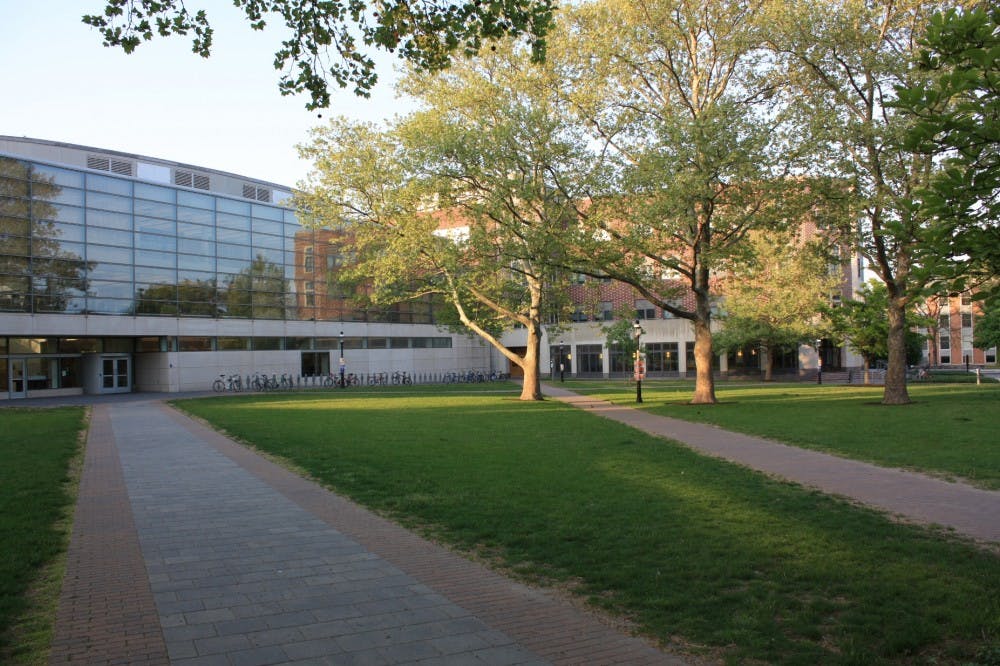Principal Deputy Solicitor General of the United States and constitutional lawyer Jeffrey Wall discussed the potential importance of upcoming Supreme Court cases and shared experiences from his decades-long career during a Tuesday lecture.
A small and independent division within the Department of Justice with a total of 21 lawyers, the Office of the Solicitor General conducts government litigation in the U.S. Supreme Court and files up to 2,000 briefs for the Court each year, according to Wall.
The Office’s only two political appointees are Wall and the Solicitor General, Noel Francisco, both of whom assumed their current positions under the Trump administration in September 2017. Previously, Wall worked for the Office as an attorney under the Obama administration.
Wall’s work in appellate law began with a clerkship with Justice Clarence Thomas right out of law school. He noted, however, that aspiring to be an appellate lawyer is “like planning to be a professional athlete.” There simply aren’t enough positions in the field for the number of talented young people who choose to pursue it.
On a personal level, Wall noted a feeling of having really “lucked out”. Growing up in a blue-collar family in a small town in Georgia, he never could have imagined that, at age 32, he would be arguing before the Supreme Court, let alone that he would one day hold the position he does now.
“I love the Solicitor General office,” he said. “It’s truly a humbling experience. We have the best lawyers in the country. I love that because you really have to check your ego at the door.”
In the self-assessed “gloomy note” of the talk, Wall noted a recent significant shift of power toward the judiciary. He believes a number of trends have recently converged such that almost every policy coming from the executive branch faces a challenge in court.
“It’s only going to get worse,” he said, explaining the danger of putting the country in a position where “we effectively disable the executive from acting.”

“The tools you forge today will be used against you tomorrow,” he added. “I don’t think Republican lawyers in red states will forget this when a Democrat takes the White House.”
When asked in Q&A if the president ever instructs the Office on what and how exactly to argue in court, Wall said, “I’m not going to say consultation with the president never happens, but it’s very, very rare.”
He stressed throughout the talk that the Court is not as political as many believe and that people generally do not appreciate as much as they should the extent to which his office cuts across partisan lines. As an example, Wall said that a few days into his appointment in 2017 he found himself arguing in defense of an endangered species act, something not regularly associated with the party that appointed him.
One case on the present docket that Wall believes will be significant is known commonly as the “Peace Cross” case. The case involves a large Christian cross visible from a public highway, initially erected in Bladensburg, Maryland, as part of a commemorative war memorial for fallen World War I soldiers. The constitutional question is whether it violates the establishment clause of the First Amendment.

The Fourth Circuit court has held that the Peace Cross “excessively entangles the government in religion,” thus failing the “Lemon test” for establishment clause jurisprudence, which comes from the 1971 case of Lemon v. Kurtzman. However, the Lemon test may be challenged by the ruling on this case, said Wall. He believes the test has proved unsatisfying as a doctrine and that the justices may announce a new test.
Wall also recalled a related New York case on legislative prayer from a few years ago in which the Court ruled the practice acceptable so long as different denominations were permitted and no coercion was involved.
“I can see them doing something similar with this case,” he said.
The Court will also be ruling on a pair of partisan gerrymandering cases this term. According to Wall, the Court has never been willing to accept such a case but never fully shut one down either, a thin line that he believes will be more difficult to walk this time around.
“The legislators testified that the map was the most partisan map they could have drawn,” he said. “The facts are pretty favorable to the challengers.”
When an audience member asked if Wall sees a possibility for changes to the number of judges on the Court and judges’ term limits, Wall admitted he doesn’t know.
“Your guess is as good as mine,” he said, but noted it seemed like a “heavy lift,” considering the difficulty with which much less controversial legislation gets through Washington.
The talk took place in Friend 004 at 5:30 p.m.








